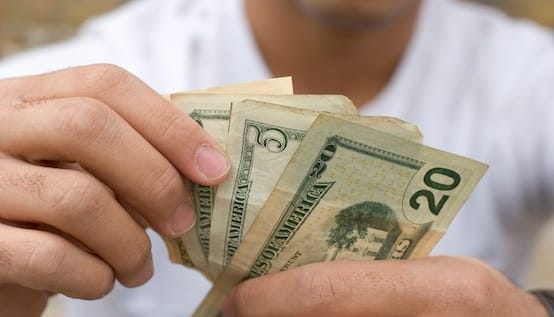Addiction Treatment
Financial Responsibility in Recovery

Written By:

Table of Contents
Coming out of recovery with your health intact and a body empty of drugs is a great feeling. You’ve got a fresh start ahead of you. While most of us are conscious of the health and sobriety battle ahead, few of us are thinking about how we can better manage our money so we don’t end up sober and broke (the perfect combination to tempt us back into using).Managing money is a touchy subject for many people and something that everyone has their own opinion about. However, there are some general guidelines regarding financial responsibility in recovery to keep in mind as you head back into the world.Have a PlanGoing into anything without a plan is the perfect recipe for failure. Without clearly defined goals to strive for, it’s difficult to know if you’ve slipped off track. With sobriety, it’s clear. The goal is to not use drugs or drink at all. But for finances, it depends on your individual income and lifestyle. Based on your actual income, give yourself a budget for all areas of your life.
- Housing
- Utilities
- Food
- Transportation
- Clothes
- Extra
There are a number of software programs, websites, and phone apps that can help you track your spending in each of these areas. Don’t let yourself go over in any of them and if you save money on one this month, you’ll have it to spend next month. Never borrow from the future. Spend a day each month tallying up your results and tracking your progress so you know how you’re doing and what the next month will look like.Stop Wasting MoneyThis is the most obvious one but the hardest to actually accomplish. There is actually very little we need on a daily basis to survive. The rest is all fluff that we buy to satiate a desire or entertain us in some way. The best way to cut costs and save money for the things you really want in life is to eliminate all the stuff you don’t need. This includes:
- Tattoos and Piercings – think of the car payment you could afford if you didn’t spend all that money on this kind of stuff.
- Retail brand name clothes – there is some pretty awesome stuff at the thrift shop if you look
- Learn to get cheap coffee – there’s nothing so special about Starbucks that you can spend $4 a day on a latte. This adds up to $120 a month. For coffee. Look elsewhere bro.
- Going out to eat – the cost of eating out (even at fast food) is one of the biggest money-drains on your wallet. A sack of potatoes and a few chicken breasts is $25 and will feed you for the whole week. Learn to cook a little.
- Cigarettes, vaping, alcohol – the things you think you need to get through the day are not actual necessities and cost more than your actual food. Rethink some of these habits. This includes $3 energy drinks and other non-essentials you grab from the gas station “just because.”
If you start to pay attention to your spending (especially the small costs that add up over time) you’ll be surprised how much better you get at managing your money. In a world of swiping plastic, it’s so easy to spend money without realizing it leaving your bank account. Track this stuff and get some accountability. Remind yourself how much better your lifestyle (and peace of mind) will be in a year if you live frugal today.
